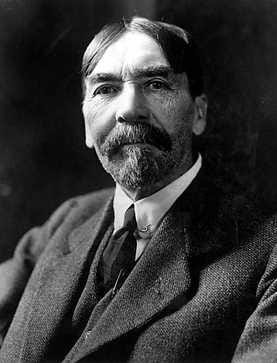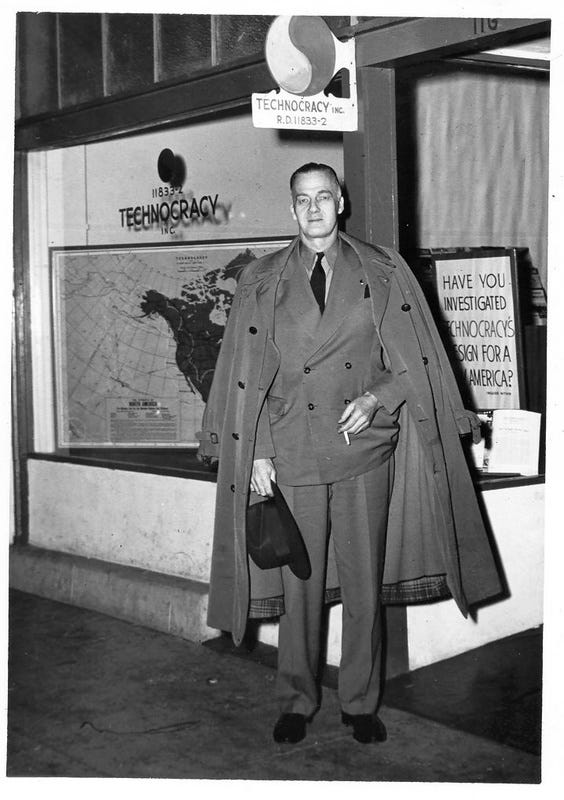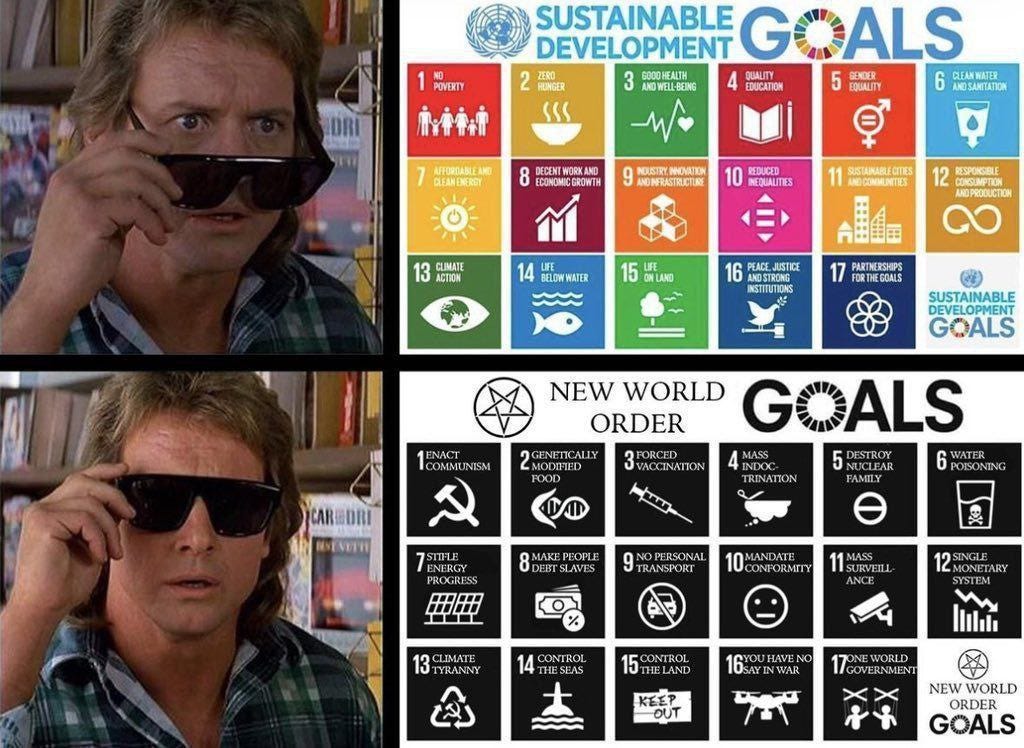COVID-19 Deep Dive Part VI: Technocracy
COVID-19 Deep Dive Part VI: Technocracy
We are witnessing the subversion and replacement of the international rules-based order with a system utterly alien to democracy
Post-Marxism
To understand the threat posed by technocracy, we must first go back to the very beginning. Thorstein Veblen was a late 19th century/early 20th century critic of capitalism who wrote several books on the topic. Though he developed a reputation as something of a womanizer and a maverick whose teaching style was regarded as dry and boring by his students, he was rather more infamous for his writings; his books were considered highly provocative at the time they were written, and today, Veblen’s legacy lives on in the terms that he coined, such as conspicuous consumption, which is the notion that the wealthy consume luxury goods solely for the purpose of demonstrating their status.
Conspicuous consumption is very much alive and well, by the way. Just ask anyone who’s ever bought an iPhone 13 when their iPhone 12 was perfectly good enough to suit their purposes, just so they could brag to all their friends and coworkers about their new acquisition.
Veblen was a progressive and Post-Marxist economist and sociologist, whose critiques spanned the entire breadth of human activity. Many of his books are available to read for free, having long since passed into the public domain.
Project Gutenberg - Thorstein Veblen
The Theory of Business Enterprise
The Engineers and the Price System
In The Theory of Business Enterprise and The Engineers and the Price System, Thorstein Veblen argued that capitalist economies create artificial scarcity by restricting production such that goods can be sold profitably, rather than maximizing the use of all available resources. In other words, managers under a capitalist system create unemployment by necessity; overproduction of a physical good to the point of it becoming essentially free would bankrupt the manufacturer.
Thorstein Veblen argued for a form of socialism based around the leadership of engineers; a society where the price system would potentially be abolished and replaced with calculation-in-kind, much like the ideas of his contemporary, Otto Neurath, who advocated for naturalkalkul.
Central to these disputes was a conflict over what constituted value. What is value? Rarely is the question asked, and yet, it is a central facet of much of human activity. People work for money because they want to buy things, and then they buy things because they desire them. In short, a price is a measure of nothing physical, but of people’s desires in the abstract. You may not want something all that badly if it cost a hundred dollars, but if it were marked down twenty percent, you might reconsider. A price measures you, in other words. It measures your willingness to purchase something weighed against the opportunity cost of not being able to budget for something else as a result.
Veblen and the Logical Positivists, on the other hand, saw this type of valuation as a form of subjective make-believe. They wanted to determine exactly how much of each physical good people actually, objectively needed to fulfill their scientifically determined physical needs, and then manufacture and distribute precisely that much of each good to each person in society.
In other words, they wanted to take subjectivity out of the equation and apply a one-size-fits-all rule to basically everyone.
Ludwig von Mises wrote a lengthy critique against this point of view in 1920 entitled Economic Calculation in the Socialist Commonwealth, wherein he argued that prices convey valuable information, and that planned economies that forsake a price system are essentially forced to grope around in the dark to figure out how to allocate resources.
However, many socialists ignored his warnings and forged ahead with their utopian vision, anyway. They were determined to make everyone equal, practicality be damned. History shows us the consequences of this, from Stalin’s gulags, to the mass starvation of Mao’s Great Leap Forward, to Pol Pot’s killing fields.
And yet, alongside Communism, another form of socialism was brewing. A socialism of computers, automation, and scientific expertise, drawing upon Veblen’s writings for inspiration. One that presaged new technologies that supposedly promised to deal with the socialist calculation problem.
They called it Technocracy.
Howard Scott and the Technocracy Movement
Howard Scott was a either a visionary or a con man, depending on who you ask. With little in the way of formal education, and a background involving such prestigious activities as pouring cement and selling floor polish, in the early 1930s, at the height of the Great Depression, he founded the Technocracy Movement, an organization devoted to establishing a “North American Technate”. In Thorstein Veblen’s writings, Howard Scott and other members of his organization saw a prescription for universal employment and the replacement of the price system with a system of energy credits as the cure for the ills of the Great Depression.
Others who were not involved in the Technocracy Movement, like Bernard London, had some other, similarly radical ideas on how to end the Great Depression, like deliberately destroying vast swaths of property and accumulated wealth so it could be profitably replaced, which is why he wrote an essay entitled Ending the Depression Through Planned Obsolescence, where he advocated that goods come with an expiration date beyond which they are to be considered legally “dead”.
At their peak, the Technocracy Movement boasted hundreds of thousands of adherents, who went all over the country in fleets of gray cars, preaching the end of capitalism and its replacement with a scientifically-managed economy operated by engineers and experts. They did not regard themselves as a political party of any kind. In fact, they sought to abolish partisan politics and replace that with scientific management, too.
Technocracy Incorporated was not a political movement – in fact, politicians or members of political parties were not allowed to join. It was founded in New York City in 1933 as an educational and research organization promoting a radical restructuring of political, social and economic life in Canada and the United States, with science as its central operating principle.
There would be no politicians, business people, money or income inequality. Those were all features of what Technocracy called the “price system,” and it would have to go.
There would be no countries called Canada or the United States, either – just one giant continental land mass called the Technate, a techno-utopia run by engineers and other “experts” in their fields. In the Technate, everyone would be well-housed and fed. All material needs would be taken care of, whether you had a job or not.
To deal with the socialist calculation problem, the Technocracy Movement proposed to precisely monitor the factors of production and all of the physical inputs and outputs of society in such a manner that calculation-in-kind became practical. To do this, they planned to appoint armies of skilled and certified technicians and engineers to manage society scientifically, doing away with politicians, parties, voting, and so on. They also sought to leverage the most advanced forms of automation, from early mechanical computers to modern-day integrated circuitry, to achieve this goal.
However, because of FDR’s New Deal and America’s growing distaste for socialist totalitarianism in all of its myriad forms, the Technocracy Movement was increasingly associated with the evils of fascism and communism in the popular consciousness. As a result, their membership waned over the years. Today, the organization is but a shadow of its former self.
This early Technocracy Movement was the harbinger of modern-day technocracy, an entirely different system championed by a far more well-connected and insidious network of wealthy and influential individuals. However, before the unprecedented rise of Silicon Valley and the modern-day technocrats, there were other projects over the course of the 20th and early 21st centuries that shared similarities to the overall goals and intentions of technocratic socialism.
Project Cybersyn
In 1971, Salvador Allende, the President of Chile and head of the Popular Unity alliance of socialist parties, embarked on an ambitious project to manage the entirety of Chile’s resources, labor, and material goods through a network of mainframe computers and telex machines.
This project was called Cybersyn, and it aimed to overcome the failings of the Soviet Union’s central planning by using advanced computer networks to monitor the factors of production and allocate resources more efficiently. Stafford Beer, an expert in management cybernetics, was the chief architect of Cybersyn, and Gui Bonsiepe designed the Star Trek-esque control room where Allende and his aides would monitor and control every aspect of Chilean life.
The program was brought to a sudden and brutal end when Augusto Pinochet utterly obliterated Allende’s government in a military coup. However, the ideas behind Cybersyn have persisted to the present day, with many aspects of management cybernetics worming their way into capitalist power structures.
Cybersyn is very much alive and well, but it is called by a different name, today; the internet, big data, algo-trading, algorithmic monitoring of consumer preferences, and so on. Every time you go on YouTube or Netflix and receive a slate of recommendations based on the kinds of things you liked watching in the past, that’s Neo-Cybersyn at work. China’s social credit score system? Cybersyn on steroids. Google censoring search results and Twitter censoring tweets? That’s the New Cybersyn, too, only extended to human-to-human interactions, under the mistaken notion that corporations have some sort of social responsibility to bar people from interacting with others if their views lie outside the Overton Window. The obsession with controlling human behavior extends into the fields of civil engineering and ergonomics. Armies of anthropologists, psychologists, and sociologists are now paid huge sums to psychoanalyze others and determine how to engineer subtle speed bumps into society to curtail harmful or asocial behavior.
From the RAND Corporation’s usage of game theory and their scientific forecasts, to Richard Thaler and Cass Sunstein’s Nudge, today’s executives have become control freaks obsessed with monitoring and shaping people’s private lives to a degree previously unheard of. All of it can be traced back to Frederick Winslow Taylor’s concept of scientific management, and to its socialist equivalents in Cybersyn and the like. Today, it is difficult to find a bureaucrat who won’t first privately cite the Prisoner’s Dilemma before publicly proposing a policy, and then proceed to use their reductionist assumptions of human life to justify inhuman, fanatical, and nigh-on-robotic totalism.
The Venus Project
Jacque Fresco was a futurist, architect, autodidact, and utopian thinker who left behind many failed business ventures to found his own organization in Venus, Florida that he termed The Venus Project. The so-called Venus Project built upon his prior ideas of something called “sociocyberneering”, which bore more than a few similarities to Allende’s Cybersyn, Howard Scott’s Technocracy Movement, and the writings of Thorstein Veblen.
I’m sure you can already see where this is going; abolish the price system, manage the factors of production directly with calculation-in-kind, et cetera, et cetera. Jacque Fresco believed that if money was done away with and society was managed technologically, with all of its inputs and outputs monitored by computers, it would solve all existing problems with poverty and the like. He was also very fond of the idea of circular cities, for some reason.
Jacque Fresco passed away in 2017, with few, if any of his ideas ever put to any practical use.
Modern Technocracy and the Rise of Silicon Valley
Largely unconnected from the prior manifestations of the technocratic ideal, Western Oligarchies have implemented many of technocracy’s ideas, albeit within a capitalist framework, with profit as the overall motive. Considerable human resources in the form of scientists and social engineers have been employed by the world’s biggest corporations to figure out how to corral their customers and modify their behavior to be as vain and materialistic as possible while squeezing as much money as they can out of them. The end-result of their efforts has been a new class war between the urban professional-managerial class of college-educated Elites and their employers, and an underclass of suburban and rural laborers and tradesmen who have seen their livelihoods utterly destroyed by the steady march of globalism and outsourcing.
The pain experienced by America’s growing number of homeless and our shrinking middle class due to the increasing wealth gap is very real. It has led to large tracts of America undergoing a kind of Weimarization; politically hyper-polarized and rife with drug abuse and prostitution. Our small towns have been flooded with opioids. Our infrastructure is outdated and crumbling right in front of us. In the midst of this bleak landscape, the tech titans of Silicon Valley have risen to fill the gap in leadership left behind by the ineffectual puppet politicians who support their agendas.
The 2010 Citizens United decision placed more power in the hands of the wealthy than ever before. Occupy Wall Street, the last gasp of bipartisan populist resistance, was smote by the ceaseless promotion of divisive rhetoric about race, gender, and sexuality which persists in the present, over a decade later, with parents ranting at school boards about the teaching of divisive and polarizing topics like critical race theory.
The economy became the domain of supranational institutions, with average citizens barred from having any influence upon how we are employed and remunerated. Tech giants have viciously silenced political dissent by characterizing it as harassment, abuse, misinformation, and so forth. They have done so with the blessing of the very same supranational institutions that our leaders have given away our political representation to.
They have bolstered this system of control by manipulating every aspect of American life. How we learn, how we eat, what we watch. The average American teen, by the time they’re ready to go to college, has already been brainwashed by the public school system for twelve years straight. Under the guise of teaching various topics like math, chemistry, history, and so forth, America’s students are, in reality, taught how to punch a clock, how to perform repetitive and meaningless tasks like filling out paperwork, how to obey unreasonable authority figures, and so on.
The divide between the political Left and the political Right in America is a circus. A collection of emotionally-charged, inherently polarizing absurdities. Its only purpose is to distract average, working-class people from the real political divide, which is between neoliberals and anti-neoliberals.
Klaus Schwab and the World Economic Forum Run Away from Their Past
When Klaus Schwab, the founder of the World Economic Forum, starts railing against “the neoliberal global order,” the world should take notice. “For the past 30 to 50 years, the neo-liberalist ideology has increasingly prevailed in large parts of the world.”
And he added: “This approach centers on the notion that the market knows best, that the ‘business of business is business,’ and that government should refrain from setting clear rules for the functioning of markets.”
Mr. Schwab goes on to solemnly declare: “Those dogmatic beliefs have proved wrong. But fortunately, we are not destined to follow them.”
On the one hand, you have classical liberals who promote austerity, the elimination of social programs, more conservative fiscal policies, more privatization, and so on, and on the other, you have democratic socialists who want more spending, more welfare, more nationalization, and so forth. These two groups are two sides of the same exact coin. That coin is the abject failure of the post-WWII liberal welfare state to make any meaningful progress in how society is run, coupled with the rise of an appalling and paternalistic strand of elitism that strives to exclude the lower and middle classes from meaningful politics.
Outside of that struggle, you have the ongoing meta-struggle between nationalism and globalism. Globalism represents both neoliberal and anti-neoliberal forces that seek to control the global markets and institutions for their own ends. Nationalism, on the other hand, is supported by a frayed, conservative-leaning citizenry and a network of political outsiders desperate to patch their governments together and retain the advantages of national sovereignty. This latter group are unfairly cast as neanderthals and reactionaries simply for expecting a first-world living standard; the perks of the nuclear family, access to education and well-paying jobs, and home ownership.
The class of new technocrats, composed of a clerisy of bureaucratic Ivy-League elites, have effectively stuffed a pacifier in the public’s mouth. That pacifier is the constant divisive rhetoric that is spread by our media, which separates the working class into progressive and reactionary camps. Meanwhile, the elites discuss real politics - the politics of the International Monetary Fund, the World Bank, the Bank for International Settlements, and the World Economic Forum - amongst themselves. The rest of us are not even invited to the conversation. We have become the unwilling captives of these elites.
It is in the context of the COVID-19 pandemic that the elites have seized even more power over our societies in the name of “public health”, aiming to radically restructure how we live, how we work, how we travel, and how we amuse ourselves. Our consent isn’t part of the equation. While blubbering about “preserving democracy”, these petty tyrants have done the exact opposite; they have transferred all political power to a shady and unaccountable network of private-public partnerships, NGOs, private intelligence firms, drug companies, arms dealers, and media conglomerates. There is no longer a point in voting, because politicians don’t set policy. Bureaucrats and businessmen up in their ivory towers set policy, and they do it according to principles they learned in private schools and prestigious colleges you could never afford to send your children to.
We see strains of technocracy in public life every day now, when we are exhorted to obey the proclamations of scientists, engineers, doctors, biologists, and other people with various degrees, because their credentials are taken as a license to create rules for others to follow. Almost overnight, armies of unaccountable, unelected “experts” have taken control of the very foundations of our society.
This is where the new technocracy differs from the old. Rather than being a bottom-up utopian pipe dream of the working and middle classes, it is instead a highly sophisticated system of tyrannical control imposed from above by the architects of business and high finance, using cutting-edge scientific management theories and vast technological resources - algorithms, big data, machine learning, and networked sensors - to monitor people’s consumption habits, direct and control their impulses with propagandistic advertising, and curtail speech aimed at revealing the system’s disgusting infringements upon our civil liberties and property rights.
The world promised by the New World Order and the UN’s Agenda 2030 is not one that any sane American should ever want to live in.
Imagine a world where private property has been largely abolished and replaced with servitization. You don’t own things anymore. You pay a subscription fee to rent them. Society is already being nudged in this direction. Instead of buying a DVD, you just get a Netflix or Hulu subscription and there you have it. Thousands of movies. Until you stop paying, and then you don’t have any movies. Adobe Photoshop and Microsoft Word are sold on subscription models.
Imagine paying a subscription for a car. Not even leasing to have one on your driveway, because you won’t have a driveway, or a garage. Why do you need a garage, anyway? Do you plan on tinkering in there and building things that endanger the safety of others? No, you’ll pull up your phone, and hail a driverless Uber that has no steering wheel whatsoever, and you tell it where you want it to go, and it drives you to your destination, drops you off, and then, it’s no longer a part of your life until you summon it again.
Picture if almost everything you owned worked like this, where you pay a subscription fee to use the communal whatever. You don’t have property. The corporations do, or the Party does. Everyone pays money, over and over, to use the same unit of production. Zuckerberg’s Metaverse is practically the ultimate expression of this rent-seeking phenomenon; in a Metaverse, you pay for digital goods for your make-believe living room, like in Second Life. No laborers are necessary to produce these goods in quantity, since a copy of a piece of data essentially costs nothing to make, and all of the profits get funneled straight to the absentee owners of the businesses that contract some down-on-their-luck 3D artists to make the “digital goods”. Eventually, AIs will spit these things out procedurally, with no human involvement whatsoever.
Why would they do this? Why would they impose a system like this on us? Well, because owning real property is bad for the environment and causing global warming and sea level rise, or something of that nature, or so they say.
The real reason has to do with the velocity of money. You see, if the material needs of a large portion of the population are satisfied and they don’t really need to consume anything more beyond that, then that will lead to an economic depression, because our economy is actually a global pyramid scheme based on a shaky foundation of mutual obligations and idiotic paper-shuffling, and any interruption in the flow of money will lead to a collapse.
Therefore, it is in the interest of the architects of high finance to ensure that you’re always consuming things nonstop, even if you don’t really need them. That’s why, even though we always see talking heads proclaiming our impending doom if we don’t do something about the environment, billions of dollars of tech gadgets are produced by sweatshop workers in China, shipped to the West on gigantic container ships burning nasty heavy fuel oils that produce the pollution of millions of passenger cars, consumed for the sake of vanity, and then thrown in a landfill after a couple years with all the other two-year-old smartphones and laptops and tablets. This model worked for a while, but it had a fatal flaw. People were financing their consumption by taking on massive, unsustainable levels of debt. Wall Street has kicked the can down the road, over and over, by Quantitative Easing and other such desperate measures, but eventually, these debt bubbles always burst.
So, how do you engineer a financially metastable society where people are always paying for things? Simple! You make it impossible for average people to accrue wealth, by replacing property ownership with a subscription model and making it so that people’s savings expire. Basically, passing down dynastic wealth through inheritance is made impossible for the lower classes.
Digital Currency: Yuan comes with an expiry date: Spend or it will vanish
The digital yuan is programmable to the point that the currency can be made to expire, thus forcing consumers to use it up by a certain date. This is a twist on an obscure, unconventional monetary policy innovation known as a Gesell currency: expiring money, which gives the issuing government a heightened degree of control over money velocity.
The way they plan on doing this is by forcing everyone to go cashless and digital, first by collapsing existing currencies, and then by replacing them with a central bank digital currency. This currency would be centrally controlled. It would be impossible for the citizenry to sock away cash under the mattress. All transactions would be monitored and specific goods rationed. Did you exceed your meat quota for this month? Sorry, your card has been disabled for that purchase. An attendant will come and put that steak back on the shelf. Are you a dissident? Whoops. Your bank account has been completely disabled. What happened to the truckers in Canada, with PayPal and GoFundMe cutting off their money and the Canadian government freezing people’s bank accounts, was a glimpse of what the future will look like under an all-digital, cashless system.
This is how the Elites of society intend to pull up the ladder and create a permanent, neo-feudalist caste system; by leveraging the tricks and tools of technocracy and scientific management to do so. The important thing to understand is that these people actively despise you. It’s not sensationalist to say that. It’s a fact. They know that you are upset at not getting your share of the enormous pie that is the past few decades of our GDP growth, after they’ve spent years and years actively eroding your labor rights and shipping your jobs overseas. They know, and they don’t care that you’re upset. In fact, they aim to take away the thin sliver of table scraps they’ve been giving you for years, and actually leave you with literally nothing, forced to pay them rent from now unto eternity for the privilege of living in a police state with mass surveillance that scrutinizes every little thing you do.
Technocracy: The Operating System For The New International Rules-Based Order
The new IRBO has nothing to do with representative democratic principles. It is entirely estranged from concepts such as freedom of speech and expression, democratic accountability, freedom of the press, freedom to roam and eschews all inalienable rights.
It is based upon a fusion between the political state and global corporations. We have recently seen this put into devastating effect in the Five Eyes nation of Canada. On 14th February 2022, in response to the ongoing nationwide Truckers Freedom Convoy protests, Canadian Deputy Prime Minister and Finance Minister Chrystia Freeland stated that the government had arbitrarily decided “to broaden the scope of Canada’s anti-money laundering and terrorist financing rules.”
Starting with crowd-funding and payment platforms, including crypto-currency exchanges, these private corporations were required to report all “suspicious” transactions to the government. This quickly progressed to freezing protestors banks accounts. Freeland said that the private corporations were “collaborating properly and effectively.”
That is the New World Order. It is a collection of private-public partnerships made up of depraved control freaks engaged in a global racket that is aimed at stripping you of your property rights, your civil liberties, and your very humanity. While the authorities screech about “protecting democracy” from the ravages of free, unrestricted speech out of one side of their lying faces, they contrive to strip you of all of its benefits when they meet in Davos each year, hailing the New World Order out of the other side of their lying, hypocrite faces and bragging about how humans are now “hackable animals” subject to every kind of manipulation.
Patrick Wood, the Anti-Technocrat
Patrick Wood is a man who saw the writing on the wall. He foresaw the threat posed by technocracy many, many years in advance, and wrote numerous books on the topic, such as Technocracy Rising: The Trojan Horse of Global Transformation, and Technocracy: The Hard Road to World Order.
Google Whistleblower: The Coming Technocracy Is More Dangerous Than Communism
“Right now we have this struggle between abusive capitalism and genocidal communism. But I think the real synthesis of that is going to be a completely different system, which I see coming really rapidly that nobody’s talking about, which is the technocracy.
“We can’t really judge it as a capitalist system or a communist system because those things were invented in the era of paper and pencil. If we’re going to rely on the era of paper and pencil to describe the thing that is coming, we need to adjust our models. What’s coming is not communism and it’s not capitalism… it’s a technocracy.
“What dangerous about it is… the average common person, their economic output is going to go down to zero. I’m not just talking about their labor because of robots, but their intellectual capacity because artificial intelligence is going to come and take it over.”
Patrick Wood has spent a great deal of time and effort trying to warn people about the ongoing erosion of our privacy, our property rights, and our civil liberties by the slow march of technocracy through our institutions.
It truly is a shame that his warnings went unheeded.
-Spartacus





Comments
Post a Comment